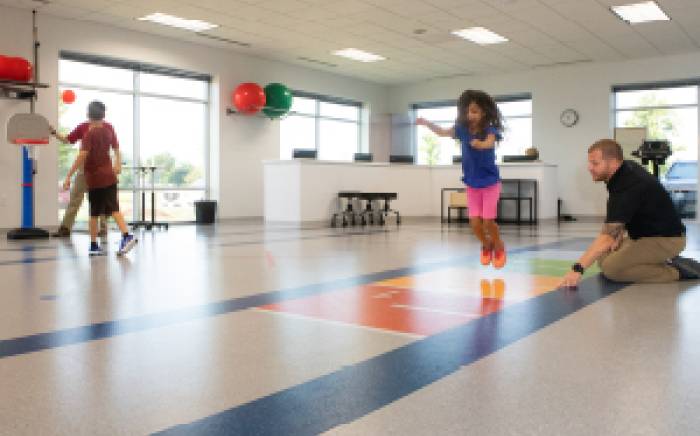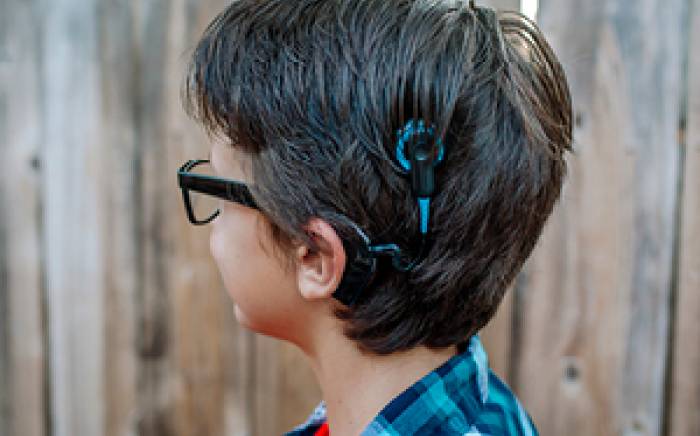 For many children with autism, playing electronic games is the perfect pastime: The games offer a predictable structure that makes them comfortable, and they don’t need to engage with people in the real world—something that makes them decidedly uncomfortable. The solitary aspect of the games—even when they involve other players online—is exactly why limiting access and length of time spent playing them is important to the progress of these children, according to Washington University physician Anne Glowinski, MD, MPE, associate director, division of child and adolescent psychiatry.
For many children with autism, playing electronic games is the perfect pastime: The games offer a predictable structure that makes them comfortable, and they don’t need to engage with people in the real world—something that makes them decidedly uncomfortable. The solitary aspect of the games—even when they involve other players online—is exactly why limiting access and length of time spent playing them is important to the progress of these children, according to Washington University physician Anne Glowinski, MD, MPE, associate director, division of child and adolescent psychiatry.
“I see a lot of children with autism who literally would be glad to spend their entire lives online. However, electronic games do little to promote social behavior abilities that will help these children in life, nor do they translate to better skills they can use in school,” she says. “In addition, the sedentary lifestyle the games promote can exacerbate health problems such as obesity, insulin resistance and the onset of diabetes.”
The potential for health problems is increased for children who take atypical antipsychotics for the purpose of controlling extreme aggression or mood dysregulation. These medications increase appetite and place children at greater risk for metabolic syndrome.
Dr. Glowinski notes there are several factors that result in autistic children spending too much time with their electronic devices. First is their tendency for perseveration, or “sticky brain.”
“Basically autistic children’s brains have a propensity to get ‘stuck’— they have to watch a movie over and over if they like it or reread their favorite book or ask a question multiple times,” she says.“Add to that the attraction every kid has to electronics and the fact that social situations are typically uncomfortable, and you have the perfect storm for obsessive game playing.”
In addition, many children with autism complain for a very long time when something they like is taken from them, and often in ways that are distressing to parents.
“In many instances children have essentially trained their parent to back off because parents have registered how upsetting and disruptive their big meltdowns can be,” she explains. “Or sometimes parents don’t want to limit electronic playtime because so often they see their children unhappy. It’s reinforcing for the parents to see the children enjoy an activity.”
Pediatricians can help parents by explaining that they need to develop a clear behavioral plan for their children. It can be very basic: Establish clear rules and schedules, which become the “commandments” of electronics. For instance, children need to spend a certain amount of time doing homework before being rewarded with game time. Autistic children like routine, so once the commandments are part of the routine, tantrums typically abate.
“This is only effective if parents stick to their rules no matter how much whining or disruptive behavior occurs. As long as children are physically safe and not being destructive, parents need to weather the reactions until a new pattern is established,” says Dr. Glowinski. “This is, of course, a challenge for many people.”
For parents who are unable to follow through on a commitment to changing behavior, or if their best efforts are unsuccessful, Dr. Glowinski suggests referring the children to behavioral specialists. “These specialists can help parents develop a behavioral plan and strategies for achieving their goal of reduced dependence on electronic gaming,” she says.
Currently, electronic games that include a learning component for children with autism—such as choosing acceptable social behaviors as a way of advancing in the game—are not yet available commercially, although some research is being done. For instance, the new Pokemon Go app does require more physical action from players, so this may be a more positive shared activity for parents and their children, especially if there are conversations about which Pokemons are favored and why.
“For all parents, those with autistic children but also all the others, avoiding the trap of using video games, movies and television as a babysitting tool will help their children develop their imaginations and entertain themselves. Having conversations, singing, playing games while traveling like ‘guess who I’m thinking about’ or counting the red cars or trucks on the road—these are the activities that engage the mind and help children in their development,” says Dr. Glowinski.
For more information about the Washington University Autism Clinical Center, or to speak with Dr. Glowinski, call Children’s Direct at 800.678.HELP (4357).












